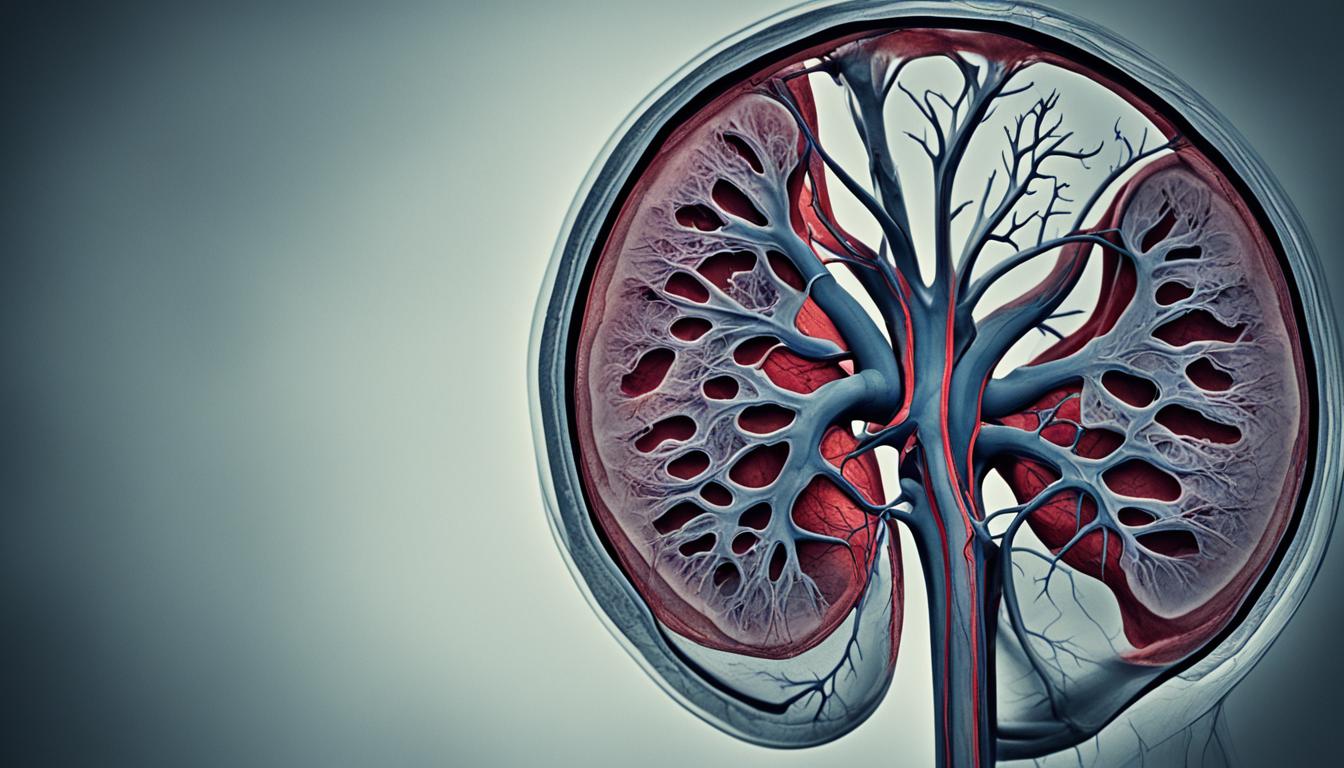End-stage renal disease is a serious condition. The kidneys can’t work well and need help to keep the person alive. Common causes include diabetes and high blood pressure. It can also be due to conditions like interstitial nephritis and glomerulonephritis. Some genetic diseases, urinary tract issues, and frequent kidney infections can lead to it as well.
Knowing the signs of end-stage renal disease is very important. People may notice they pee differently or less often. They might not want to eat, feel sick, or throw up. Other symptoms can include tiredness, feeling weak, swelling in the ankles and feet, and problems with high blood pressure. They might find it hard to sleep, have headaches, muscle pain, or not think clearly. Sometimes, they might taste metal in their mouth.
To find out if someone has end-stage renal disease, a doctor does a check-up and some tests. These tests look at the urine, blood, and how the kidneys are working. The results help the doctor decide how bad the kidney problem is. They also help choose the best way to treat it.
Treatments for end-stage renal disease can help the kidneys work better or help manage symptoms. People might need dialysis, a kidney transplant, or medicine. Sometimes, doctors suggest changes in diet and lifestyle. Dialysis helps the body get rid of waste and extra water when the kidneys can’t. A kidney transplant puts a healthy kidney in place of a failing one.
Thanks to new treatments, life can be better for those with end-stage renal disease. Yet, if other health problems like heart issues are there, it might not be as easy. Finding the disease early and taking good care of yourself can make a big difference. Regular check-ups to see how the kidneys are doing are important.
Key Takeaways:
- End-stage renal disease, or kidney failure, requires kidney transplant or dialysis for survival.
- Common symptoms include changes in urination, loss of appetite, nausea, fatigue, swelling, and difficulty managing blood pressure.
- Causes of end-stage renal disease include diabetes, high blood pressure, kidney infections, and genetic factors.
- Diagnosis involves physical examination and various tests to assess kidney function.
- Treatment options include dialysis, kidney transplant, medications, and lifestyle changes.
- Long-term outlook depends on additional conditions, such as heart issues.
- Early detection and management are essential in preventing kidney disease progression.
Types of Renal Diseases and Acute Renal Failure
Renal diseases come in many types that can harm the kidneys. Chronic kidney disease (CKD) is a common one. It slowly gets worse over time, possibly leading to end-stage kidney disease.
CKD is caused by several things. These might be issues like glomerulonephritis, polycystic kidney disease, or damage from diseases like diabetes. It also includes congenital problems and exposure to harmful substances over time.
Acute renal failure, on the other hand, strikes suddenly and is often due to different reasons. These include blockages from kidney stones, severe infections, and imbalances in the body. Urgent medical care is critical to prevent serious harm to the kidneys.
Stem Cell Therapy for End-Stage Renal Disease
Stem cell therapy is an exciting new option for those with end-stage renal disease. It uses stem cells, such as MSC+ renal stem cells, which can turn into different types of cells. This includes kidney cells. When these stem cells are put into the body, they can help the kidneys work better. This gives hope to patients who don’t want or can’t have traditional treatments like dialysis or a kidney transplant.
There are two ways stem cells can help with kidney problems. They can make the kidneys work better. And they can help with low red blood cell levels, which often happen in end-stage renal disease. This is a big step in treating the disease without surgery or long hospital stays.
This treatment can work whether or not someone is having dialysis. It involves putting special stem cells back into a patient’s body. These cells go to the kidneys and start to heal them.
Stem cell therapy is getting good results in those with chronic kidney disease. For people whose kidneys aren’t working well, it can lower how often they need dialysis. In some cases, it might even stop the need for dialysis.
In short, stem cell therapy brings hope to people with the most severe kidney problems. By using stem cells, patients might not need dialysis or a new kidney. It’s a new and promising way to treat this serious disease.

